Tell us a little about yourself, your family, including how you got started as a journalist?
In my memoirs The One Who Writes I wrote that I did not want to become a journalist but a writer. However, my grandfather Ivan Dobravec Plevnik left Zagreb for Virovitica in 1899 and founded the first Croatian-language newspaper Virovtičan. My father Zvonko was mostly a typographer and less a journalist, my uncle Božidar was a legend of journalism in Glas Slavonija in Osijek, his son Žarko was a journalist on Croatian Radio Television, his daughter Maša also worked as a journalist and this fall her daughter Ana-Lena Cvitanušić is enrolling journalism at the Faculty of Political Science in Zagreb. My wife Jasna is a journalist and editor, and my son Natko is a graduate journalist, who worked for the BBC for a short time but is not a journalist. So the family gravity of journalism seems to have influenced me to become a journalist.
I started in 1977 as a journalist in one of the largest daily in Croatia, Večernji list. It was a regional edition and the editor needed comments from the culture so I immediately became a columnist. Not bad start?
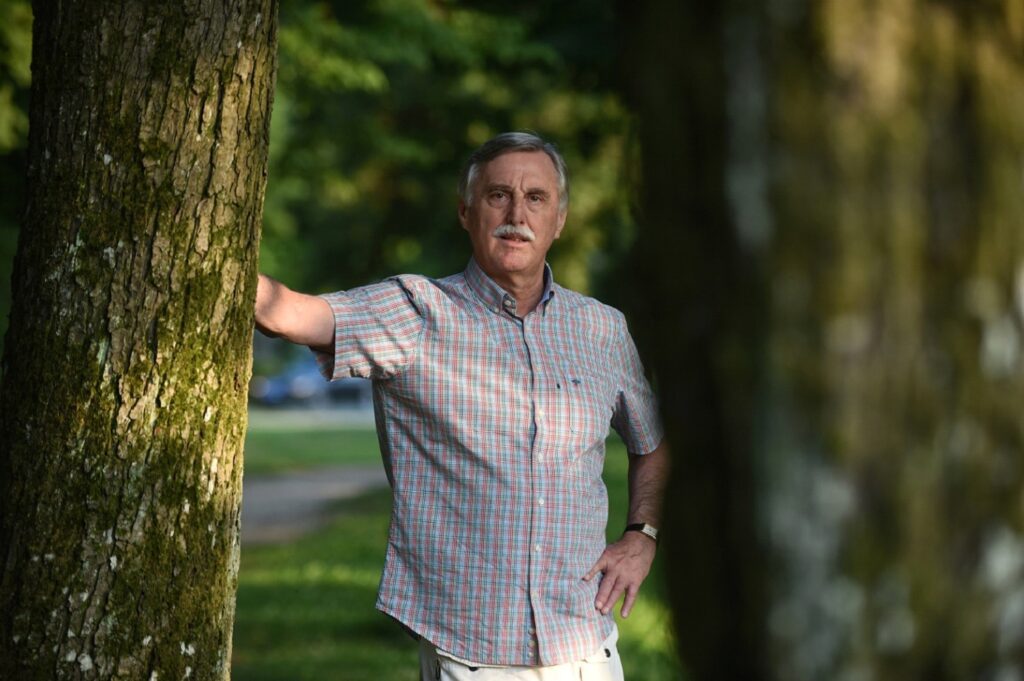
Danko Plevnik, Karlovac, Croatia
You travelled a lot, you visit different countries. Can you tell us a little more about this period in your career.
In the former state of Yugoslavia, I was involved in domestic politics. When it disintegrated and new states emerged, I immediately became an expert in international politics. Some embassies read my texts, so I was invited to the USA, Cuba, Sweden, Japan, China, Albania several times … As a member of the Association of European Journalists, I went through a good part of Europe. I followed four U.S. presidential elections and crossed America from Buffalo to Miami, from New Haven to San Francisco. In America, a journalist is a privileged person because Americans know what media freedom is, but also what is the price of media propaganda. I visited Cuba in 1987. I got a driver, a guide and an interpreter. I was supposed to do an interview with Fidel Castro, but obviously my questions were too journalistic so he declined the interview. I was a columnist for Hindustan Times in New Delhi for a year and a half.
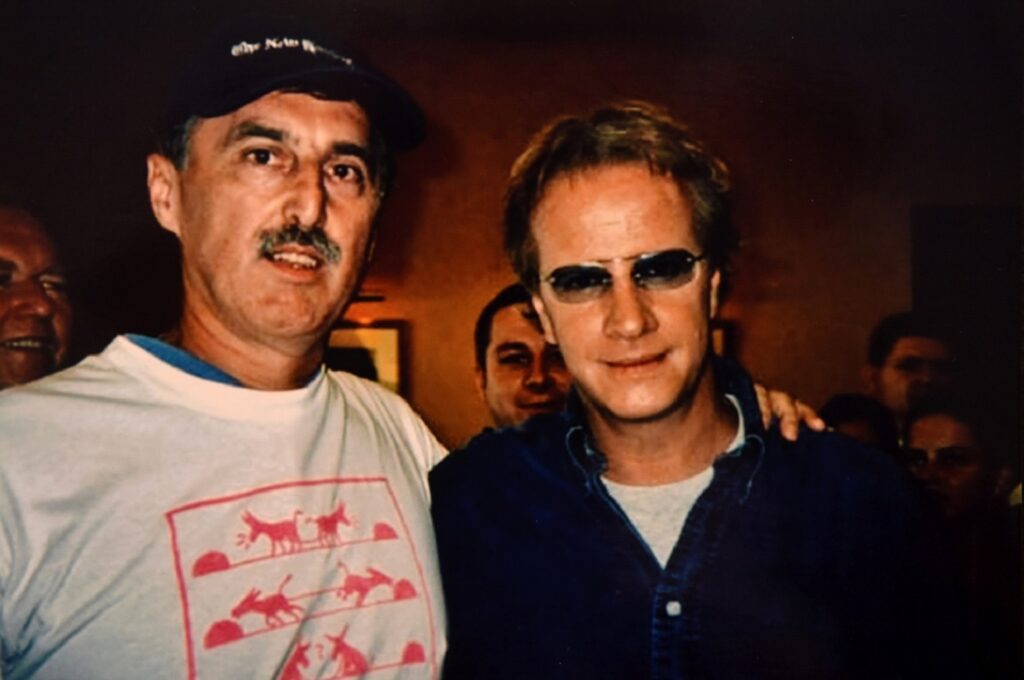
Danko Plevnik with Christopher Lambert
And you met also many important persons. Maybe if you can present some of them.
So far you’ve been asking me to talk a „little more“ about myself and travel so I don’t know how „little more“ space I have for interesting people. As a journalist who wrote the book New NATO or Old Geopolitics, which I dedicated to father of modern American diplomacy George Kennan, I was pleased to meet the coryphaeus of American geopolitics, Zbigniew Brzezinski. I met Vaclav Havel in Vienna 1999. The leading European intellectual Jürgen Habermas, with whom I had an interview, remained in my memory, and I also met Pope Paul VI and the leading Catholic theologian Hans Küng. In New Haven, I met Paul Kennedy whose book The Rise and Fall of the Great Powers in the late 1980s was one of the most cited books and Eugene Garfield one of the foundres bibliometrics and scientometrics, by his edition of Current Contents and Science Citation Index (SCI). I met also Swedish Minister Anna Lindh couple of months before her assassination.
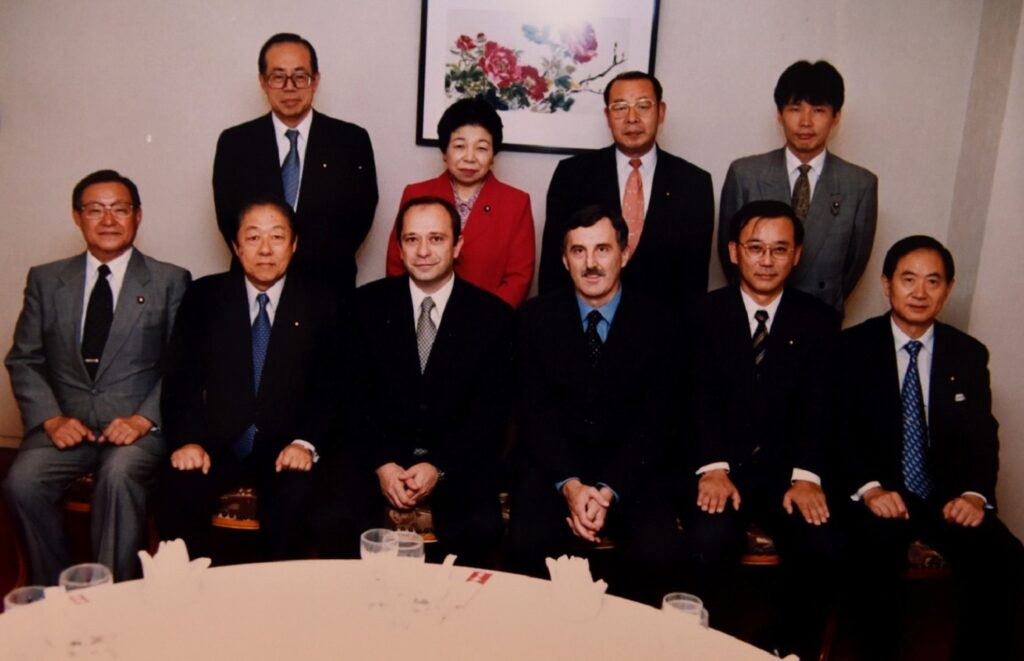
Danko Plevnik with with Japanese parliamentarian group
You have a long year experience, starting from reporting in the time of “old Yugoslavia”. What was the difference of the journalism in that time and today?
When we talk about Yugoslavia, we are talking about socialism. Clearly, this was neither the time nor the birthplace of press freedom. Censorship prevailed among editors and self-censorship among journalists. However, there have always been journalists who could and should have shown a more critical attitude towards the search for truth. I once talked about this with the late writer Mirko Kovač, who agreed that the age of censorship was a fertile ground for developing aesthetics and writing style because it was the only way out for real journalists. After the fall of the Berlin Wall, journalism became freer in Yugoslavia as well, and journalists fought mostly for media independence. There is no such passion in today’s journalism, the journalistic profession has been reduced to a begging for poor salary, the media have been taken away from journalists, but journalism is still the driving force of society because it is impossible to ban real journalists.
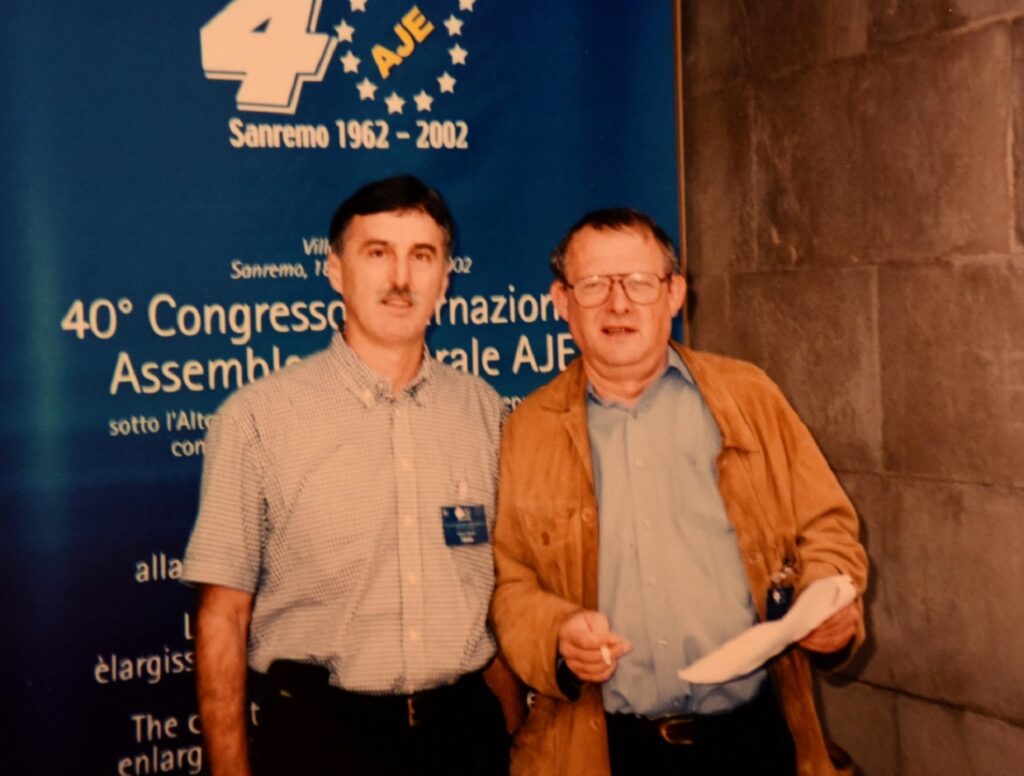
Danko Plevnik with leading European and Polish intellectual and journalist Adam Michnik
What was your biggest challenge as journalist?
Staying professional in the middle of a war when everyone demands that you not be professional in the name of patriotism. I wanted to tell my readers the facts and explain them, not be a blind and deaf “media battalion” without compassion for the truth and different citizens. Of course, they threatened me for that and once tried to liquidate me, but I did not make it public, as it is a risk of the profession. Remaining a normal man is not only an ideal for a journalist but also for all other professions in the crime of war. I condemned war criminals publicly, but I placed the greatest responsibility on those who organized the war crime.
In peacetime, I have always preferred journalism not only as a kind of analysis but also as a prediction. In April 1992, in Little Rock, I stayed at Bill Clinton’s headquarters and predicted his and All Gore’s victory over George Bush, although he then had a 30-point lead by the polls. The biggest challenge for a journalist is to learn how to suppress their own vanity. In April 1992, I was a guest of parliament in the state of Iowa in the United States. When they heard that I had become the journalist of the year in Croatia for 1991 and 1992, the whole parliament rose and gave me a standing ovation. Fame can also corrupt.
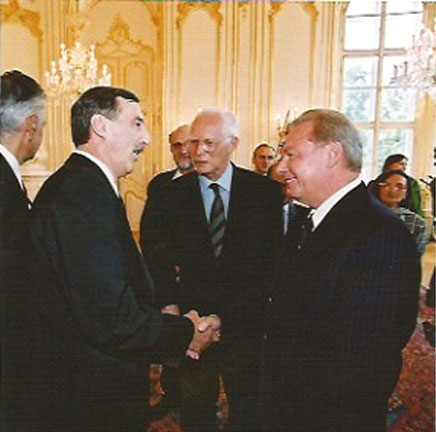
Danko Plevnik with President of Slovakia Rudolf Schuster
But you worked from a smaller town in Croatia – Karlovac. What is the difference of being journalist in a smaller town and the capital?
In the age of the corona virus, everyone started working from home. I have worked from home for almost my entire career. Before I became a journalist I was a librarian. I wrote one scientific article Reading – The most important concern for a university in the Journal of Reading 1981. Prior to its publication, I received a telegram from The President of The Rockefeller University Joshua Lederberg to send him a reprint of this article of mine. Most Nobel laureates in the world come from that university. As my dear professor from the University of Zagreb Božo Težak said, it is not important where you live but what sources of information you can get and know how to process them. The advantage of living in a small town is that it frees you from being too close to politicians so that you can keep a proper distance from them. For example, I wrote global topics in a regional daily such as Slobodna Dalmacija, which delighted Mariana Stoican, editor-in-chief of International Radio România International.
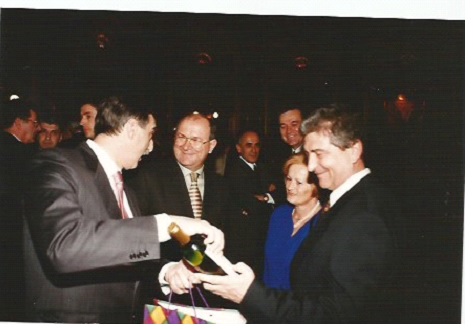
Danko Plevnik with former Prime Minister of Bosnia and Herzegovina Hasan Muratović (right) and his wife Mulia and Croatian Minister of Foreign Affairs Mate Granić
Your work is connected to the South East Europe Media Organisation (SEEMO) from the start of our organisation. How important is SEEMO for you?
SEEMO was created by journalism experts, university professors and distinguished journalists. When I received the “Dr. Erhad Busek” award from such a group of people, it resonates from Poland to Turkey, that is, from all the countries that participate in the concept and in the SEEMO process. I participated in a number of well-organized conferences and left them forever enriched by the knowledge and experiences of those who were on the same level of journalistic achievement. SEEMO was one of the organizers of the world press congress in Ljubljana, where I had the opportunity to personally meet the editors-in-chief of the world leading newspaper such as The New York Times and Neue Züricher Zeitung and many prominent world journalists. SEEMO is an indispensable association when it comes to considering the perspective of the development of journalism and the protection of human, civil and professional rights of journalists and the media freedom and quality in Eastern and Southeastern Europe.
How you see the political situation today in your country and the role of politicians? Situation of media?
Croatia recently had parliamentary elections. The results are largely similar to those for the European Parliament election last year, where nationalists and populists were defeated. After 25 years of unacceptable stalemate between Croatian politics and Croatian Serbs, there has finally been a shift, from the militaristic past to a universal civic future. The most deserving of this is the Prime Minister Andrej Plenković, who with his personality and European style won the elections for the Croatian Democratic Union. Unfortunately, the media have been at a low level in the past. This is especially true of Croatian Radio Television, which I do not remember in a worse edition. Mitja Meršol, the editor of the best Yugoslav daily Delo from Ljubljana where I was guest columnist, once told me that Croatia has better journalists and Slovenia better editors. I agree with this because Croatian editors unnecessarily and insanely give space to people who behave unconstitutionally and spread hate speech.
If in the past it used to be read between the lines, today it must be read between the media because only if you follow all the media only then can you get more complete information. The Croatian Journalists’ Association is facing bankruptcy due to a long and unfair trial. Maybe something will change since the Ministry of Culture and Media was established.
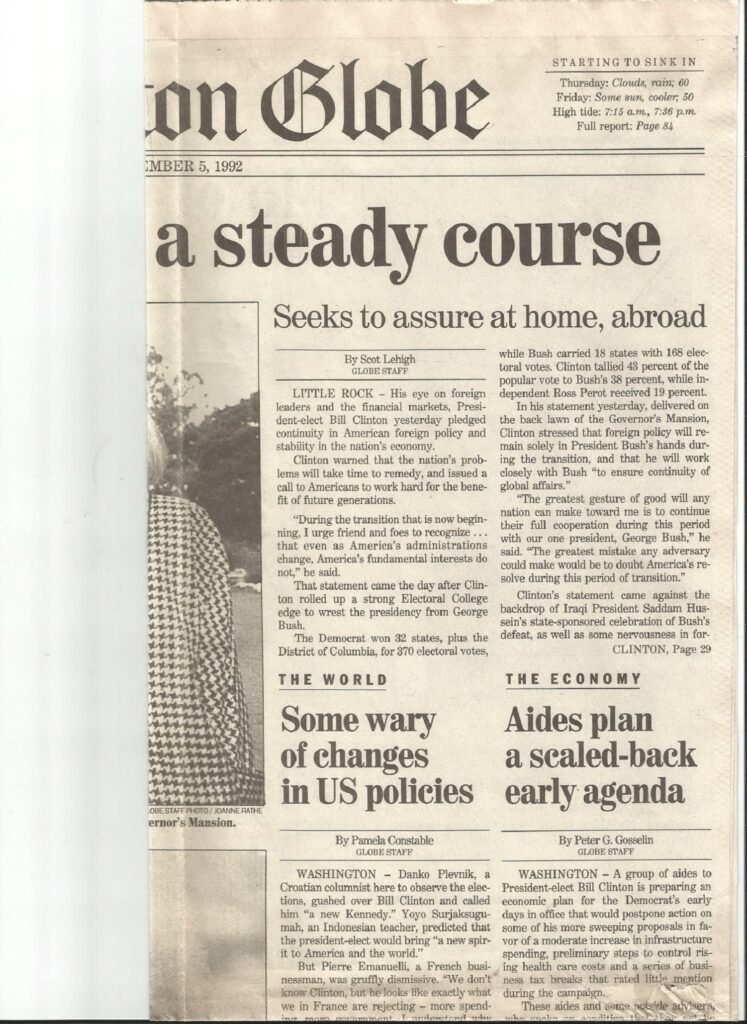
An article by Pamela Constable in Boston Globe with a statement by Danko Plevnik of the presidential victory 1992 of Bill Clington
And in Europe… Worldwide?
The news paradigm has changed. Now the newspaper is announcing how many minutes it will take to read an article because it is still not read with a remote control, the way television is viewed. The contents are in the tabloid manners and the quantity of tweets is ideal. Globalization has narrowed the gap between global, American, and European media, as online journalism and social media set the pace. Yet even avalanches of information are unable to interpret an event and dispel the possibilities of an outcome. Journalism is in crisis, but it is actually looking for the best journalists. Because who can verify the real face of an event as soon as possible? Only educated and experienced journalists! My doctoral mentor, Professor Pavao Novosel, said in the late 1970s that all citizens would become journalists, which came true because everyone tweets everything and takes photos. However, the news is not a comment, it is not an understanding. In an effort to save profits, media houses sacrifice their best journalists, at the same time wondering that the decline in quality does not raise circulation.
Please walk us through a typical workday. How do you manage your time today?
There is no mystique here. I have breakfast after 8 in the morning and watch CNN, BBC, SKY, France 24 at the same time, and N1 from franchise CNN and sometimes Al Jazeera Balkans. For about half an hour I read the mails and online edition of The New York Times and several portals. At 10 I leave the apartment. As I walk, I call my friend Zvonko Kusić, former president of Croatian Academy of Sciences and Arts who is prime minister Andrej Plenković’s social affairs advisor. I meet friends, I rarely sit down for coffee, I’m not a typical journalist, I flip through the newspaper at the Youth Library, I buy bread and what I need. At 11 a.m. on WhatsApp, I am working on a book Humanity without borders about Srđan Kerim through dialog with him who was Minister of Foreign Affairs of Northern Macedonia and President of the 62nd Session of the United Nations General Assembly. At 1 pm I watch the best TV News in the region of Radio Television Slovenia. At 2 pm, my wife Jasna also informs me about what she read in The Guardian and what she writes for some important Chinese media, since she is the president of Geoeconomic Forum and one of the biggest European experts for China, where she goes six or seven times a year with former President Stjepan Mesić. After lunch I watch Iranian director Ashkan Najafi movie The Red Hatchback on HBO and then I work on my trilogy book about so cold small and big fellow citizens. I like to be in bed the most, this is my cottage, where after a long time I read Slavenka Drakulić’s book They Would Never Hurt a Fly. We go for a walk in the cemetery because there are no people there, and then no corona. When I get back I read Roman Farrow’s book War on Peace: The End of Diplomacy and the Decline of American Influence. After dinner, we watch Czech drama television series about 1989 The Sleepers on HBO about Prague where MI5 and FSB were fight during the transition. Before midnight, control the portals so that I don’t miss anything before going to bed. I don’t want the outbreak of World War III happening behind my back.

Danko Plevnik in front of Zaha Hadid building in Antwerp with son Natko 2019
How you see the future of media? Especially print media.
In the English Information design journal I published 1984 an article The implicity of simplicity: toward the theory of individual information. That was prophetic thinking. At that time, the mass media prevailed and there was no IT structure for personal information. The 2016 U.S. presidential election showed what Facebook and Cambridge Analytica can do with personal data. Global social networks are able to instantly gather information about the interests of many citizens who use them. The predominance of electronic media gives the impression that the end of television and paper media is approaching because young people are completely committed to information and communication technologies and cannot do and live without mobile phones and laptops. Former head of the BBC and The Neew York Times Mark Thompson dreamed of a combination of newspapers modeled on Netflix. The best newspapers are still one of paper. Why in the digital age despite cell phones do people have a need for watches? Shouldn’t it be the same with the best newspapers?
Finally, as press freedom and democracy is very important in your life, can you give please some advice for younger journalists?
At a press conference in Thessaloniki, young journalists complained to the elderly, which I immediately condemned saying that there are no old and young journalists but good and bad. Young people may have more strength for new illusions, but old people also know from experience that the point is much deeper. Anyone who wants to pursue journalism must believe in themselves regardless of who is currently in power in politics or the media. Existing media pluralism in itself ensures freedom of publication. Ronan Farrow (1987) is an American journalist, son of actress Mia Farrow and filmmaker Woody Allen, known for his investigative reporting of allegations of sexual abuse against film producer Harvey Weinstein, which was published in the magazine The New Yorker. That investigative effort contributed to development of the #Me Too movement.
Journalists should be taught about real relations in the all media and the newspaper market, not just learn the alphabet of journalism that is in conflict with editors or colleagues who for corruption reasons do not want to publish the truth.
